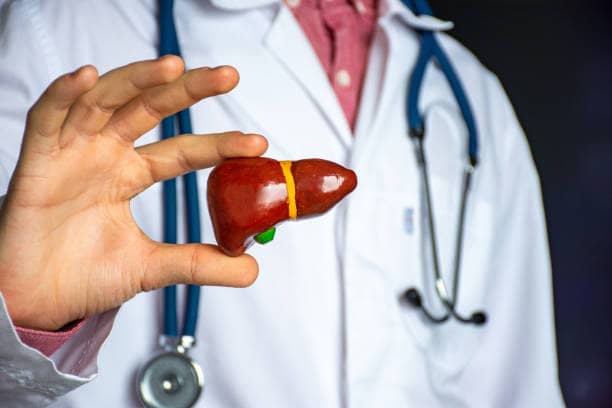To Treat Mental disorder are complex conditions that affect millions of individuals worldwide. They encompass a wide range of disorders, including anxiety, depression, bipolar disorder, schizophrenia, and more. Treating mental disorders is a multifaceted process that requires a holistic approach, considering various factors that contribute to the development and exacerbation of these conditions. In this article, we will explore a comprehensive approach to treating mental disorders, integrating medical, psychological, social, and lifestyle interventions to provide individuals with the best chances of recovery and improved well-being.

Understanding the Complexity of Mental Disorders:
Before acting into treatment strategies, it’s essential to acknowledge the fine details of mental disorders. They often arise from a combination of genetic, biological, psychological, and environmental factors. Consequently, a one-size-fits-all approach is ineffective in treating these conditions. Each individual’s experience with a mental disorder is unique, and treatments must be tailored to address their specific needs.
The Role of Medical Interventions: The science of drugs treatments play a significant role in managing mental disorders. Antidepressants, anxiety, antipsychotics, and mood stabilizers are commonly prescribed medications that help regulate brain chemistry and alleviate symptoms. However, it’s crucial to note that medication alone is rarely a comprehensive solution.It’s important to work closely with a healthcare professional to find the right medication and dosage, as well as to monitor potential side effects. Medications can manage symptoms, but they often need to be combined with other interventions for long-term success.
Lifestyle Modifications: Healthy lifestyle habits can play a significant role in managing mental disorder. Regular exercise, a balanced diet, sufficient sleep, and stress-reduction techniques can contribute to improved mental well-being. Engaging in activities that bring joy and practicing relaxation techniques like deep breathing and meditation can be beneficial.
Psychological Therapies: Psychotherapies are fundamental components of treating mental disorders. Cognitive Behavioral Therapy (CBT), Dialectical Behavioral Therapy (DBT), psychodynamic therapy, and mindfulness-based therapies are examples of effective psychological interventions. These therapies help individuals identify thought patterns, emotions, and behaviors contributing to their condition and provide them with tools to manage and cope with their symptoms. Through therapy, individuals can develop healthier coping mechanisms and build resilience.
Social Support: Social connections play a important role in mental health. Friends, family, and support groups can provide a sense of belonging and understanding that reduces feelings of isolation. Social interventions involve fostering healthy relationships, improving communication skills, and rebuilding a support network. Additionally, involving family members in therapy sessions can help them better understand the individual’s challenges and provide a conducive environment for recovery.
Lifestyle Modifications: Lifestyle factors have a significant impact on mental health. Encouraging individuals to adopt a balanced and healthy lifestyle can greatly contribute to their well-being. Regular exercise has been shown to release endorphins, which can reduce symptoms of depression and anxiety. A nutritious diet rich in essential nutrients supports brain function. Sufficient sleep is crucial for cognitive functioning and emotional regulation.
Holistic Approaches: Holistic treatment approaches consider the individual as a whole, addressing their physical, emotional, and spiritual needs. Practices such as yoga and meditation promote relaxation and self-awareness, helping individuals manage stress and anxiety. Holistic treatments also encompass alternative therapies like art therapy, music therapy, and animal-assisted therapy. These creative outlets offer individuals alternative ways to express themselves and process their emotions.
Integrating Technology: In the digital age, technology has opened new avenues for treating mental disorders. Teletherapy and online support groups provide convenient options for individuals who might have difficulty accessing in-person services. Mental health apps offer tools for mood tracking, guided meditation, and relaxation exercises. However, while technology can be beneficial, it’s essential to ensure that these tools complement rather than replace traditional therapies.

Self-Care Practices: Self-care is a crucial aspect of managing mental health. Encouraging individuals to prioritize their well-being through activities they enjoy can enhance their overall quality of life. Engaging in hobbies, spending time in nature, practicing mindfulness, and setting healthy boundaries can all contribute to better mental health. Self-care empowers individuals to take an active role in their recovery journey.
The Importance of Professional Guidance: While self-care and lifestyle adjustments are valuable, it’s essential to stress the significance of seeking professional help. Mental health professionals, including psychiatrists, psychologists, therapists, and counselors, possess the expertise to diagnose and develop personalized treatment plans. Collaboration between individuals and mental health professionals ensures comprehensive care that addresses all aspects of the disorder.
Breaking the Stigma: Efforts to treat mental disorders must also encompass addressing the stigma associated with seeking help. Societal attitudes and misconceptions often prevent individuals from seeking treatment early on. Education and awareness campaigns can contribute to changing these perceptions, encouraging more people to reach out for help without fear of judgment.
Patience and Long-Term Outlook: Treating mental disorders is a journey that requires patience and commitment. Quick fixes are rare, and setbacks are normal. The process involves periods of progress and challenges. It’s crucial to maintain a long-term perspective and celebrate even small victories along the way.
Mindfulness and Meditation: Mindfulness techniques involve staying present in the moment and observing one’s thought and feelings without judgement. Meditation can help patients manage stress, anxiety, and depressive symptoms by promoting relaxation and fostering a sense of inner peace.
Setting Realistic Goals: Recovery from a mental disorder is a journey that requires patience and persistence. Setting realistic goals and celebrating small victories along the way can boost self-esteem and motivation to yourself. It’s important to remember that setbacks are normal, and seeking healthcare professional help when needed is a sign of strength, not weakness. It always doesn’t matter what the society says or how society look at you, only you are the expert for yourself to improve physically as well as mentally.
Conclusion:
Treating mental disorders is a complete activity that involves a multifaceted approach. By integrating medical interventions, psychological therapies, social support, lifestyle modifications, holistic practices, and technology, individuals can receive well-rounded care that addresses their unique needs. Breaking the stigma surrounding mental health and promoting a culture of understanding and support are also vital components of successful treatment. Remember, seeking help is a sign of strength, and with the right treatment plan and support network, individuals can manage their conditions and work towards a better quality of life.








2 thoughts on “How to Treat Mental Disorder?”